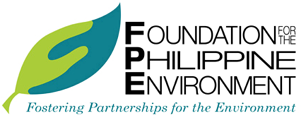News
Sarihay in Focus: “Ensuring Rivers are Clean” by Jonathan L. Mayuga
Posted on May 5, 2015(First in an eleven-part series.)
“Visualize the rivers as your veins. They are the bloodstream of society.”
These are the words that Environment Secretary Ramon Paje shared with Business Mirror correspondent Jonathan Mayuga in an interview regarding the notable penalties that the Department of Environment and Natural Resources (DENR) slapped against Philex Mining Corp. when said mining company accidentally leaked an estimated 2 million tons of waste into the Balog Creek in Benguet and Agno River in Pangasinan.
(FPE has assisted efforts to evaluate the environmental, health, and social impacts of the incident. An October 2012 study – jointly conducted by the Cordillera Peoples Alliance, KATRIBU Indigenous Peoples Partylist, Kalikasan-People’s Network for the Environment, Philippine Task Force on Indigenous Peoples, Agham, Center for Environmental Concerns, Amianan Salakniban-Northern Luzon Network for the Environment and Human Rights, and Bantay Amianan – affirmed that the Philex mine spill has alarming repercussions that affect the livelihood resources residing communities surrounding the area, and further posits that there may also be longer-term and farther-reaching health impacts. Read more about it here.)
The DENR sanction – which also included a fine of more than PhP 1 billion, a suspension order, as well as an order for the firm to “clean the affected water bodies and bring back the water at the Balog Creek and Agno River to their ‘pristine’ state as that before the leak” – was the focus of Mayuga’s piece on the Philippine government’s strong stand when it comes to protecting and conserving the country’s bodies of water.
(Wikimedia Commons, via Business Mirror.)
The piece, entitled, “Ensuring Rivers are Clean” and published in the Business Mirror on November 29, 2014, was recognized as the Best Print News Story (National) in FPE’s first Sarihay Media Awards.
Below is an excerpt from the article, continuing Sec. Paje’s statements regarding the value of rivers in Philippine society:
“If the veins are clogged, people die. This is the same with society,” he told the BusinessMirror in an interview. “If the bloodstream is clogged, people die. If rivers are clogged, society will die.”
Rivers, he said, are important life-support system that provide people with water, a precious economic resource, for a wide variety of uses—mainly for drinking, agriculture, trade and commerce, recreation and transportation, to name a few.
Ensuring water is clean—especially as source for drinking—is the reason various environmental laws, including programs and projects, are developed.
Endowed with a rich environment and natural resources, the Philippines boasts of having one of the most number of river systems that support life and maintain the country’s status as one of the most mega-diverse countries in the world.
According to the River Basin Control Office, there are a total of 421 river basins in the country, including 18 major river basins that are considered critically important.
While many of the rivers are “alive and well” those that passes through urban areas, such as Metro Manila, are “dying” and need to be resuscitated.
Mayuga’s report also highlighted ongoing government focus on protecting watersheds, such as Angat Dam and Ipo Dam, as these are the main sources of the country’s rivers. Efforts include the DENR’s National Greening Program (NGP), “a big component in maintaining the desirable water quality in the rivers,” according to DENR-Forest Management Bureau Director Ricardo Calderon. FPE is one of DENR's partners, alongside the Philippine Tropical Forest Conservation Foundation (PTFCF), for the effective and efficient implementation of the NGP, especially within the Foundation's conservation priority sites.
This watershed conservation, protection, and rehabilitation model is recognized and being utilized by the DENR as a comprehensive solution to address the preservation of natural resources, habitats, and their resident wildlife and plant species, as a whole.
Mayuga, however, also pointed out in his article that environmental protection and conservation efforts are not only the government’s responsibility, but one that is shared by all.
Read the article, “Ensuring Rivers are Clean” in its entirety by clicking here.
* * * * *
The Sarihay Media Awards was launched last February 2014 in recognition of the important role of the media in promoting awareness and better understanding of environmental and sustainable development issues among policymakers, decision makers, and the public. The campaign served as both acknowledgement and reward to those who deliver outstanding and responsible reportage of environmental news. The term "Sarihay" comes from the Filipino phrase, "Samu't Saring Buhay", which aptly describes biodiversity.
Read More:
- Executive Director Dr. Jerome L. Montemayor carried the banner of the Foundation for the Philippine Environment and the larger civil society during the SBSTTA 26 and SBI 4 meetings in Kenya
- Call for Proposals for the SGP-8 Country Programme Strategy
- #Y4B Ambassadors: JOEPET JEROME S. JARO
- #Y4B Ambassadors: MELLARD MANOGURA
- #Y4B Ambassadors: MARY JANE P. MAGAN
- #Y4B Ambassadors: SHRI TAHANIE B. MACAUMBAO

 DISPLAY CALENDAR
DISPLAY CALENDAR

 Read Policy Briefs
Read Policy Briefs
 View Our Partners
View Our Partners
 Access Grants MIS
Access Grants MIS
 Login to Webmail
Login to Webmail